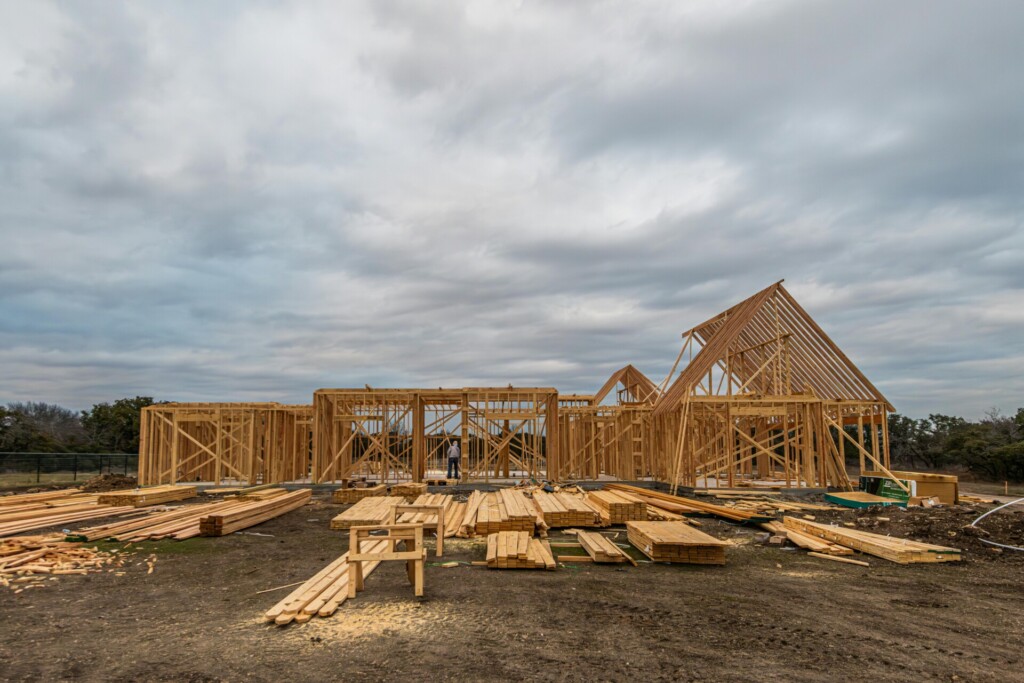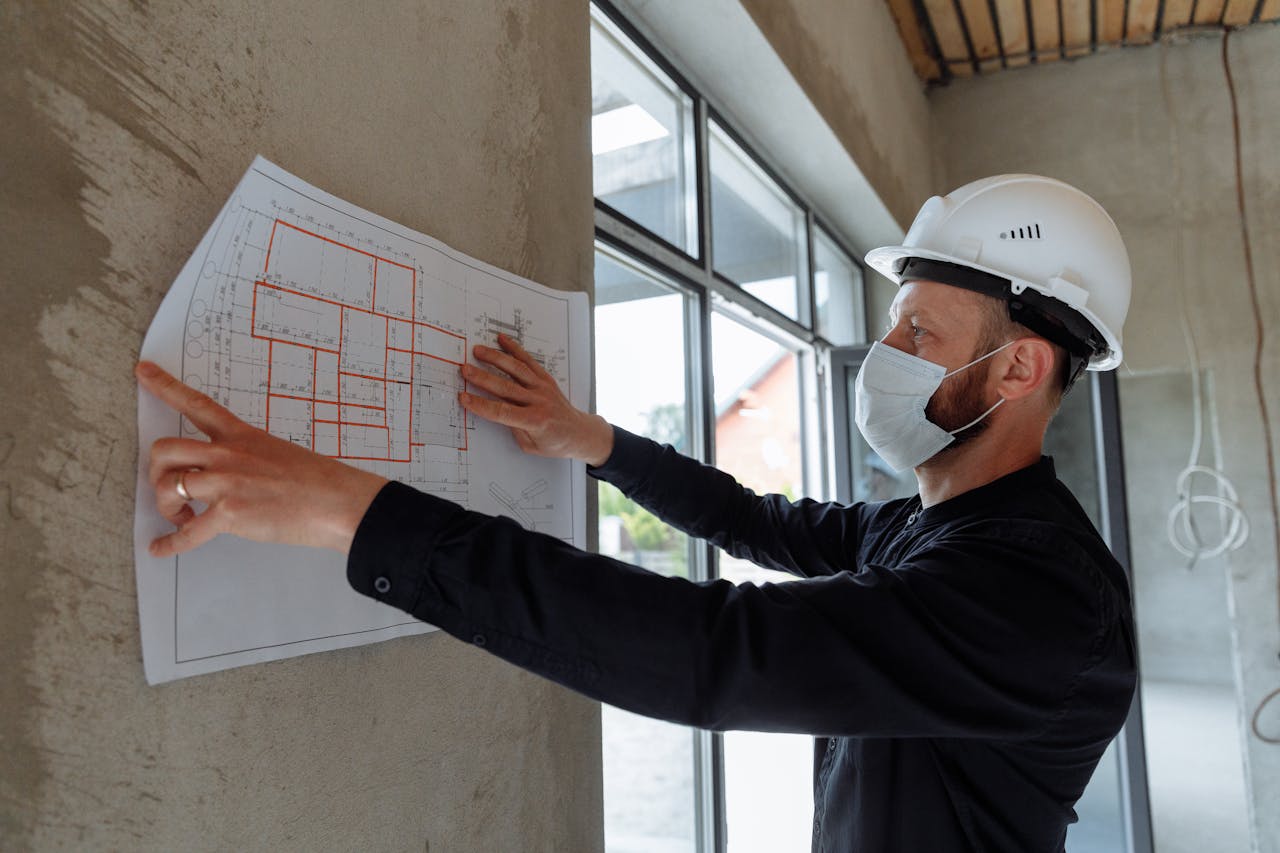The Dallas–Fort Worth market hosts one of the nation’s most active construction sectors. With 3,761 general contractors listed in Dallas alone, the DFW Metroplex offers extensive contractor capacity across multiple project types.
North Texas general contractors handle diverse work spanning commercial, residential, and infrastructure builds. Their teams typically include pre-construction specialists, estimators, project engineers, superintendents, and safety personnel to manage complex projects from conception through delivery.
Where Do North Texas General Contractors Operate, And Which Sectors Do They Serve?

North Texas contractors extend their reach across the extensive Dallas-Fort Worth metropolitan region. This geographic coverage spans multiple counties, creating opportunities for developers and property owners to find contractors with specific local knowledge.
Dallas County Coverage Areas
Dallas County serves as the primary hub for North Texas construction activity. We coordinate projects throughout the county’s major cities, including Dallas proper, Addison, and Richardson. These urban centers present unique construction challenges, from downtown high-rise coordination to suburban commercial developments.
The county’s diverse municipalities each bring specific permitting requirements and zoning considerations. Contractors operating in areas like University Park or Highland Park must navigate stricter architectural guidelines, while industrial zones in Farmers Branch or Mesquite offer different regulatory frameworks for warehouse and manufacturing construction.
Tarrant County Operations
Fort Worth and its surrounding communities in Tarrant County represent significant construction markets for North Texas contractors. We manage projects in Arlington, Grapevine, and Keller, where mixed-use developments and corporate relocations drive steady demand.
Tarrant County’s industrial corridors support heavy construction activity, particularly around transportation networks. Cities like Haltom City and North Richland Hills provide opportunities for both residential remodeling and commercial build-outs, requiring contractors to maintain diverse capabilities.
Collin County Growth Markets
Collin County’s rapid growth makes it a focal point for construction activity. We execute projects in Frisco, Plano, and Prosper, where population increases fuel demand for everything from retail centers to healthcare facilities.
Cities like McKinney and Allen present opportunities for contractors specializing in mixed-use developments and educational facilities. The county’s emphasis on planned communities requires construction teams familiar with HOA requirements and architectural standards that exceed basic building codes.
Sector Diversity Across North Texas
North Texas contractors serve commercial, residential, healthcare, institutional, industrial and energy, and infrastructure sectors throughout the region. This sector breadth allows property owners to identify contractors with relevant experience for their specific project type and location requirements.
Commercial construction dominates much of the contractor activity, spanning office buildings, retail centers, and mixed-use developments. Healthcare and institutional work requires specialized knowledge of medical gas systems, clean room protocols, and accessibility compliance that extends beyond standard commercial construction practices.
What Scopes And Services Are Common Among North Texas General Contractors?
Commercial remodeling and renovations represent the most in-demand services across the DFW region. We handle office transformations, retail space upgrades, and industrial facility improvements. These projects require coordination of multiple trades and careful scheduling to minimize business disruption.
Franchise build-outs and finish-outs have grown significantly as national brands expand into North Texas markets. Shell space finish-outs demand careful attention to brand standards while accommodating local building codes. The process involves everything from initial space planning to final inspections and certificate of occupancy.
Residential remodeling capabilities vary widely among contractors, with custom bathroom renovations being a specialty area. These projects require plumbing expertise, waterproofing knowledge, and familiarity with accessibility standards. Quality tile work and fixture installation separate experienced teams from general handyman services.
Commercial painting encompasses both interior and exterior applications across office buildings, retail centers, and industrial facilities. We coordinate with facility managers to schedule work during off-hours. Surface preparation, primer selection, and finish durability all impact long-term performance and maintenance costs.
Structural and site work includes concrete placement, earthwork operations, and demolition services. Structural steel installation requires certified welders and crane operators. Masonry work spans from decorative brick facades to load-bearing block construction. Rough carpentry provides the framework for interior buildouts.
MEP coordination involves electrical systems, plumbing installation, HVAC design, and electronic security integration. Licensed MEP professionals handle permit applications and code compliance. We coordinate these trades during the rough-in phase to avoid conflicts and rework. Proper sequencing prevents delays and cost overruns.
Finish trades cover roofing systems, flooring installation, custom cabinetry, and interior wall finishes. Roofing projects require weather monitoring and safety protocols. Flooring options range from commercial-grade carpet to polished concrete. Cabinet installation demands precision measurement and hardware expertise.
Design-build services combine architectural planning with construction execution under a single contract. Project management coordination ensures schedule adherence and budget control. Many contractors maintain relationships with architects, engineers, and specialty consultants to provide turnkey solutions.
Some teams coordinate licensed MEP professionals for complex mechanical, electrical, and plumbing installations. Experience with SBA loans and traditional project funding helps owners navigate financing requirements. This knowledge proves valuable for small business expansions and franchise developments throughout the region.
How Can Owners And Developers Find And Evaluate Contractors In North Texas?

Finding qualified contractors in North Texas requires accessing reliable directories and conducting thorough evaluations.
For transportation and infrastructure projects, we recommend consulting the Texas Department of Transportation’s prequalified contractors lists, which were last updated on December 2, 2024. TxDOT prequalification indicates contractors have met specific financial and technical standards for highway construction, maintenance, and materials projects. This resource proves particularly valuable for public-sector work or projects requiring specialized infrastructure expertise.
Essential Evaluation Criteria For North Texas Contractors
When developing your contractor shortlist, we focus on six critical evaluation areas that directly impact project success. Relevant sector experience tops this list—confirm the contractor has completed projects similar to yours, whether healthcare facilities, retail spaces, or infrastructure work. Service area alignment ensures the team can efficiently manage your specific location within the DFW region.
Trade capacity verification prevents gaps in your project execution. Assess whether contractors can handle your required trades, including electrical, HVAC, concrete, structural steel, and specialized systems. Many contractors coordinate these services through subcontractors, so understanding their trade network becomes essential.
Pre-Construction And Financial Capability Assessment
Pre-construction and estimating support capabilities distinguish professional contractors from those operating with limited planning resources. Strong preconstruction teams provide accurate cost projections, schedule development, and constructability reviews that reduce change orders during construction. This planning phase directly influences project budgets and timelines.
Licensed MEP involvement and safety oversight represent non-negotiable requirements for complex projects. Verify that contractors either employ licensed mechanical, electrical, and plumbing professionals or maintain established relationships with qualified MEP subcontractors. Safety oversight includes OSHA compliance, on-site safety plans, and documented safety records.
Familiarity with funding pathways helps contractors navigate your project’s financial structure. Some contractors have experience with SBA loans, traditional construction financing, or alternative funding methods that may benefit your specific situation. This knowledge streamlines the approval process and prevents delays related to financial documentation.
These evaluation criteria help development teams align on scope, risk, and schedule expectations before contract execution. Thorough vetting reduces project risks and establishes clear communication channels for successful project delivery.
What Roles And Skills Should Project Teams Expect From North Texas General Contractors?
North Texas general contractors deploy specialized teams with distinct roles designed to handle complex construction projects. Understanding these roles helps property owners and developers set realistic expectations and identify the right contractor capabilities for their project needs.
Key Project Team Roles
Logistics and pre-construction planners form the foundation of successful projects. These professionals coordinate material deliveries, schedule trades, and establish construction sequences before work begins. They work closely with estimators who analyze plans and specifications to determine accurate project costs.
Project engineers handle technical aspects of construction, reviewing drawings, managing submittals, and solving field challenges. Superintendents oversee daily site operations, coordinate subcontractors, and ensure work quality meets specifications. Field managers bridge the gap between office operations and on-site execution.
Safety staff implement and monitor compliance with OSHA regulations and company safety protocols. Their oversight protects workers and helps contractors avoid costly delays from safety incidents or regulatory violations.
Essential Technical And Management Skills
Technical knowledge spans multiple areas. Trade-specific abilities include expertise in HVAC systems, demolition procedures, and masonry installation. This breadth allows teams to coordinate complex mechanical, electrical, and structural components effectively.
Project management capabilities encompass scheduling, resource allocation, and progress tracking. Communication skills enable clear coordination between stakeholders, from architects and engineers to subcontractors and suppliers. Problem-solving abilities help teams navigate unexpected challenges without compromising schedules or budgets.
Time management ensures milestone adherence and efficient resource utilization. Leadership skills allow superintendents and project managers to motivate teams and maintain productive working relationships across trades.
Supporting Competencies For Quality Delivery
Math and reading proficiency supports accurate quantity takeoffs, specification interpretation, and cost calculations. These fundamental skills ensure estimating accuracy and proper material ordering.
Quality control knowledge helps teams identify and address construction defects before they become costly problems. Field operations experience enables practical decision-making about construction methods, equipment selection, and workflow optimization.
These combined capabilities support planning accuracy from pre-construction through project closeout. We coordinate these skills to deliver projects that meet schedule, budget, and quality requirements while maintaining safe working conditions throughout construction.
Conclusion And Next Steps

North Texas general contractors provide comprehensive coverage across commercial, residential, and infrastructure projects throughout the DFW region. The market offers significant trade breadth and specialized expertise to support diverse development needs. With proper evaluation, property owners can access qualified teams capable of managing complex builds from initial planning through final delivery.
To select the right contractor, start by defining your project scope and required trades clearly. Confirm service area coverage for your specific city within Dallas, Tarrant, or Collin counties. For infrastructure projects, verify TxDOT prequalification status to ensure regulatory compliance. Finally, evaluate team roles, safety processes, and funding familiarity to align expectations and minimize project risk from pre-construction through closeout.
Ready to move forward with your North Texas construction project? Contact EB3 to discuss how we can support your development goals.




